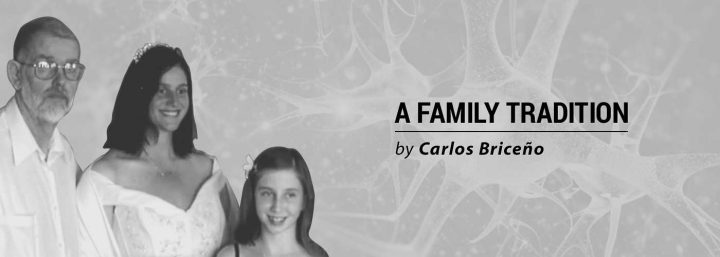Being Patient and Being Hurt: A Fine Balancing Act
Written by |

My wife and I don’t argue often. Here’s why: When we started dating, she shared with me her brilliant idea of a happy marriage. Jill asked me, “Do you want to be right or do you want to be happy?” I often choose happy.
As my family knows, sometimes I am unable to focus and stay on task (a mindset we lovingly refer to as, “Look, a bird!”), and at other times I focus too much. Once something is in my head, I can ignore the needs of those around me. Jill has unending patience with my ping-pong mind.
Sometimes, I do something that pushes her patience too far and she loses her temper. Her flash of anger is usually followed by an apology for being “snippy” and an explanation of why she was angry. Her explanation most often makes sense to me, and I try to change whatever I did that upset her.
Recently, however, she got mad at me and it didn’t make sense. I tried to understand why she was so mad. She didn’t even want me to explain what had happened. This time, she was in the wrong. I wanted to yell at her. I wanted to shake my finger and tell her just how wrong she was. I wanted to storm out of the room and slam the door.
I didn’t do any of those things. I sat there and thought of all the things that were going on with her, all the things that could add up to her being upset enough to take it out on the wrong person.
I didn’t say anything about it. Although her behavior really hurt my feelings, I just kept thinking that she’d needed to do it, and as her future caregiver, it was my job to accept her as she was and where she was. Even if she was in the wrong.
Over a week later, she had gained some perspective about what she had said and done. She said she had been out of line and that she was sorry. I accepted her apology and told her about my hurt feelings and the conclusion I’d come to about accepting her.
She told me I cannot think like that. That no matter what happens to her, my feelings are always valid and important — more important than my role as a caregiver. She knows that if I continue to treat her as a patient instead of a wife, I will become resentful. Just because she may not always control what she is upset about, I am not required to be silent.
It is not easy navigating the husband-caregiver role, but as my wife, Jill will help me with great advice and support until it is time for me to step into the caregiver role full-time. Whatever happens, I know that being a husband and a caregiver will always involve a fine balancing act. Both will require a lot of patience and love, which is what Jill has always shown me.
***
Note: Huntington’s Disease News is strictly a news and information website about the disease. It does not provide medical advice, diagnosis, or treatment. This content is not intended to be a substitute for professional medical advice, diagnosis, or treatment. Always seek the advice of your physician or other qualified health provider with any questions you may have regarding a medical condition. Never disregard professional medical advice or delay in seeking it because of something you have read on this website. The opinions expressed in this column are not those of Huntington’s Disease News or its parent company, Bionews Services, and are intended to spark discussion about issues pertaining to Huntington’s disease.






Pauline Patrick
Hello
I just wanted to remind all of us there is real time cure that will soon be available!!
Hope and a cure with positive energy for everyone!
Thank you
Pauline P